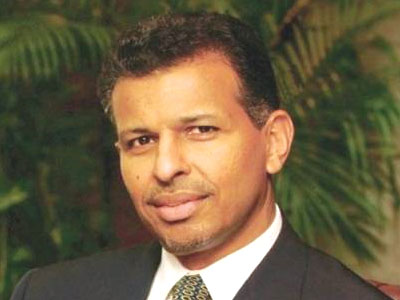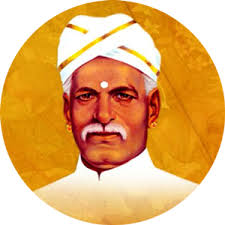“Our mission is to have 5,000 schools on a global basis”

-Sunny Varkey
Shiny Abrahaam
Sunny Varkey is an education entrepreneur and is chairman of GEMS Education, a family-owned business. He is a UNESCO Goodwill Ambassador for Education Partnerships.
Son of Indian expatriates, who went to Dubai in 1959, Sunny Varkey s dreaming of big opportunities in the education sector. In the 1980, he took over management of his parents’ Our Own English School’ and transformed it in three decades, doing everything from laying bricks for school buildings to driving the school bus. Today his GEMS Education is the largest operator of private kindergarten-to-grade-12 schools in the world. It has a network of 124 schools with over 130,000 students, 11,000 teachers, all over the Middle East, Africa, Europe, China, and India. The business also has a consultancy that advises governments and nonprofits. Bill Clinton is honorary chairman of his Varkey GEMS Foundation, which aims to have a positive impact on the lives of 100 impoverished children for each child enrolled at a GEMS school.
Parents of Sunny Varkey, the late K.S. Varkey and Mrs Mariamma Varkey, arrived in Dubai from India in 1959. They quickly set about teaching the local Emirati and expatriate community. They opened their first school, Our Own English High School, in 1968 with just 27 students, three teachers and no air conditioning. Sunny Varkey, took over the business from his parents in 1980, and over the next three decades he turned GEMS Education into a multi-national company. Sunny Varkey, a tycoon based in Dubai dreams of running the biggest private school empire in the world and he’s well on the way to doing it.
“Our mission is to have 5,000 schools on a global basis in 15 years’ time. If you look at the hotel industry and the fast-food industry, they are all having thousands of outlets all over the world and we will be the same,” he says. There’s no attachment to the welfare state here, and especially not to the grand old public schools of the empire. Varkey wants virtually all parents to pay for their children’s education and schools to compete on cost and value. He advocates cheap private schools as well as expensive ones, in the way airlines supply budget as well as luxury travel.
From Sunny Varkey’s office, you can see the Burj al-Arab hotel, all seven-and-a half stars, 56 storeys and minimum £750 a night of it. Strung out on a man-made island, the Burj dominates the skyline in Dubai, where nothing but the sand is natural and everything can be brought in. A few blocks away are the Dubai American Academy, one of Varkey’s most prestigious schools, and Dubai Ski, a huge metal sock on stilts which houses the largest indoor ski park in the world.
By Dubai standards, Varkey’s office, in an industrial area next to a dual carriageway, is low on bling. For a multi-millionaire he is disarmingly ungrand, a slender, quiet 47-year-old who was educated at Bembridge college, a minor boarding school on the Isle of Wight. He is an Anglophile and sent his two sons to Winchester, then Sheffield and Edinburgh universities. But the chairman of Global Education Management Systems (Gems), which owns “nearly 60” schools and educates 55,000 children worldwide, has a message that is very much made in Dubai. He wants to be the biggest private education provider in the world.
Not for him the euphemism of “independent schools” to describe his business. “We are private schools, we don’t take donations, we pay our taxes wherever we go. Being a private set-up, you have to deliver all the time, and parents nowadays don’t pay money until they feel they are getting value,” he says. “Private education is very much different from the way charitable schools are run.”
Varkey was working in Standard Chartered bank in Dubai when he happened to see his manager’s salary. “I thought, if I end up being a banker, I will not be able to develop in life.” He went into business to run Our Own English High School. The Dubai government was demanding the school be refurbished, so Varkey took control of it. He expanded and launched new schools at a rapid rate.
The Gems advisory board is dominated by a distinguished cast of UK educationists, including Sir Mike Tomlinson, Sir Gareth Roberts and James Sabben-Clare. Varkey bought schools across the United Arab Emirates and, in 2003, he acquired his first schools in England: Sherborne House in Hampshire and Bury Lawn in Milton Keynes. Soon afterwards, he took over Sherfield school, also in Hampshire, and then purchased another 10 schools from Nord Anglia, mainly in the north. As yet, the fees in Britain are not much different from the competition, but that has not stopped the brickbats.
“I think fundamentally she doesn’t know what private education is all about,” Varkey says. “It takes seven to 10 years before you make any money [in a school]. You have to be continually updating all the technology and all the staff and so on, so it’s a constant process of ploughing money back … there’s a lot of difference between for-profit and profiteering and our business is very much about not compromising on quality.” And he allows himself a quiet smile. Returning to his airline metaphor, he says: “In an aeroplane, you have sometimes passengers that get totally drunk and they are terribly abusive and what they do is they just take them off the flight.”
In England, Varkey says he is concentrating for the next couple of years on making his schools fit the Gems model. Gems has just taken on a school in Berlin and expansion will continue elsewhere, into the Far East and the US.
“Everybody is making money, the people who supply the equipment are making money, the people who supply the inspections are making money, the contractors are making money. Everybody is making money except the poor teachers! Today, because the UK education industry is 90% controlled by the government, there’s no free market. You have doctors earning what they want, lawyers earning what they want. Why can’t a teacher earn like a doctor or lawyer or chartered accountant, simply because the government says, ‘this is all you can have’?”
In Dubai, where he has 17 schools, Varkey’s vision has already been realised. Over a couple of days, his officials whizz me from school to school, showing them off but also allowing me to poke around. The Gems model seems to me reminiscent of a very well-run local education authority, with a central administration committed to sharing ideas and best practice, and evaluating and supporting individual schools. They aren’t left to succeed or fail alone.
The schools are all English-language and run either English, Indian or American curriculums (occasionally a combination), in three broad price tariffs – premium, mid-range and budget. The most expensive, Jumeirah college, had a visit from Andrew Flintoff the other day, and a girl bowled him leg stump.
For fees of up to 51,750 dirham a year (£8,100) the students, mostly European, almost all expat, get a grammar-school style education. They do Sats, GCSEs and A-levels and the school says its results “easily place Jumeirah college in the top 5% of British curriculum schools around the world”.
The children at the Jumeirah primary school luxuriate in wide corridors and an IT-heavy library. Parents pay up to £4,700 a year. “You can get on with the job here without being hindered by society’s ills,” says Clare McIntyre, the vice-principal, who stopped here en route to emigrating to New Zealand from east London.
Dan Young, the charismatic superintendent of the American Academy, has the trappings of a US high school at his disposal – basketball courts and an American curriculum with “sports” and “math”. A sign at the entrance announces: “Gems looks at learning from all facets. Like a precious stone, a Gems education has enduring value.” Young says: “What we have here is a welcomeness and a child-centredness and the friendliness really permeates things.”
The mid-range Dubai Modern High school delivers an Indian education that achieves strong results and wonderful art work. At the budget end, the original Gems school, Our Own English High – which also teaches the Indian curriculum – charges from £450 a year. The school has 8,500 students and 287 teachers operating in two shifts, from 7.45am to 1pm and 1pm to 6.15pm. “Every inch of space and every minute is utilised,” says the headmaster, MA Hamid.
At Westminster school, the principal, David Morrison, once a deputy head in Luton, is the only British teacher. His 4,444 students come from 69 countries and most of his teachers are from the sub-continent. Eighty per cent of students achieve at least five Cs or better at the international GCSE. They pay between £500 and £1,000 a year to attend.
Despite pokey, crammed classrooms taking 30 students at a time and a pretty tatty exterior, Morrison claims to attract parents who could easily afford posher education. “It’s because of the philosophy of Gems. We are driven by quality and have a chairman who will not accept anything else.”
Without exception, the teachers seem charming and committed to the Gems philosophy of attention to detail and a nebulous, but decent, set of universal values, such as forward thinking and world citizenship. Varkey calls it “a unique brand of holistic education”.
“They didn’t sell me the school on its academic output,” says Geoff Turner, the principal of Jumeirah college, who was the head teacher of the specialist Frederick Gough school in Scunthorpe. “For the first time, I’d seen someone in the private sector talking about holistic education.”
The only time Varkey really falters in my interview is when I ask him what he thinks of faith schools. There is a long pause before he says: “It depends what they are teaching, really … One of the most important commandments in the Bible is love your neighbor as yourself.” In a Muslim country, he can’t proselytise. But his schools don’t seem to me to be much more than very subtly Christian.
The atmosphere is generally serious and perhaps a little low-key, but students smile and do not seem ridden with academic angst. Most of the schools have airy, open lobbies with coffee tables and sofas, not unlike a hotel, and although they are busy, they do not feel flustered.
“We teach children about respecting others,” says Varkey, “and I think parents love it because, being a private school, we can do that. It’s not very easy doing some of these things in a state school. Being private, you can do a certain amount of screening and monitoring and filtering. When you are in a state school, teachers obviously spend a lot of time trying to maintain discipline in the class. And parents when they pay are also very responsible.”






